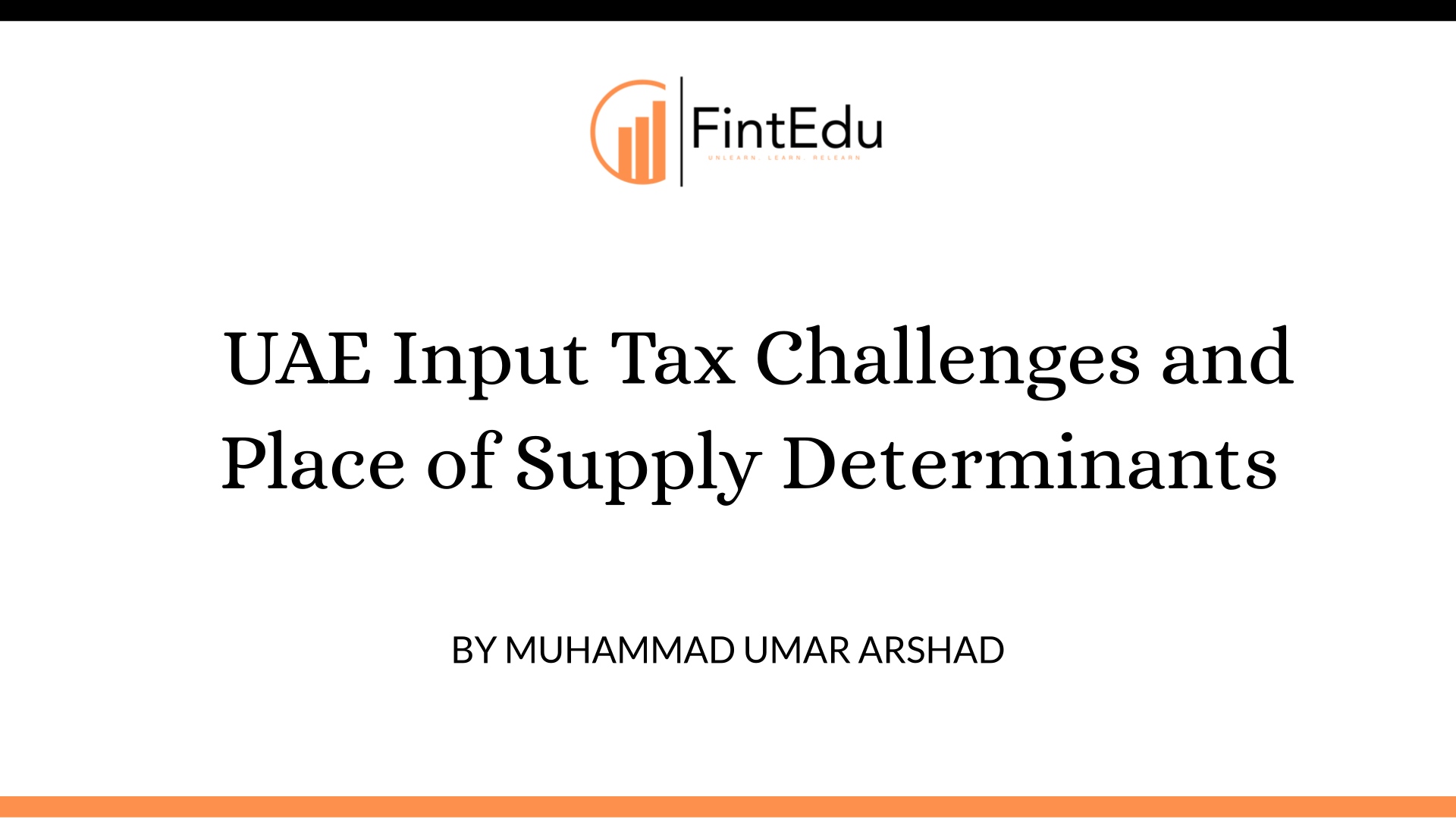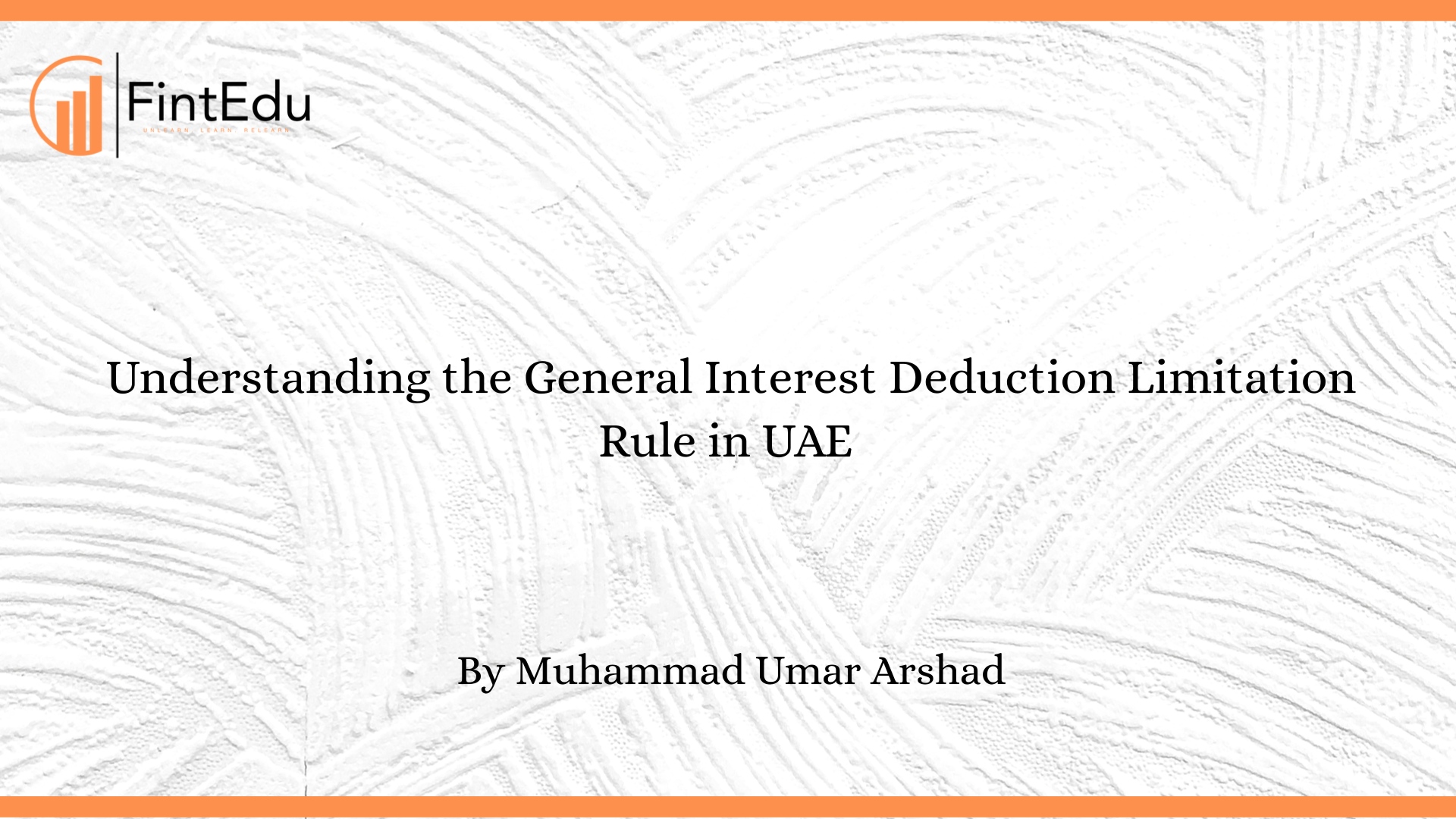LISTEN TO THIS ARTICLE
This article gives a significant aspect of UAE Corporate Tax—𝗧𝗵𝗲 𝗚𝗲𝗻𝗲𝗿𝗮𝗹 𝗜𝗻𝘁𝗲𝗿𝗲𝘀𝘁 𝗗𝗲𝗱𝘂𝗰𝘁𝗶𝗼𝗻 𝗟𝗶𝗺𝗶𝘁𝗮𝘁𝗶𝗼𝗻 𝗥𝘂𝗹𝗲—and shed light on its implications for businesses.
Here's a comprehensive overview of this rule:
𝗗𝗲𝗳𝗶𝗻𝗶𝘁𝗶𝗼𝗻:
The Corporate Tax Law refers to the amount of Interest that is deductible as Net Interest Expenditure. Net Interest Expenditure is the difference between the amount of Interest expenditure incurred (including any carried forward Net Interest Expenditure) and the Interest income derived during a Tax Period
𝗧𝗵𝗿𝗲𝘀𝗵𝗼𝗹𝗱:
When Net Interest Expenditure surpasses AED 12,000,000 within a Tax Period, the deductible Net Interest Expenditure is determined as the 𝗴𝗿𝗲𝗮𝘁𝗲𝗿 of:
i) 𝟯𝟬% 𝗼𝗳 𝗘𝗕𝗜𝗧𝗗𝗔 for the Tax Period, adjusted for specific components.
ii) The de minimis threshold of 𝗔𝗘𝗗 𝟭𝟮,𝟬𝟬𝟬,𝟬𝟬𝟬.
𝗔𝗽𝗽𝗹𝗶𝗰𝗮𝘁𝗶𝗼𝗻:
This rule "General Interest Deduction Limitation Rule," applies uniformly across industries. Additionally, any amount on Islamic Financial Instruments akin to Interest under conventional financing arrangements is treated as Interest for this purpose.
𝗖𝗮𝗿𝗿𝘆𝗳𝗼𝗿𝘄𝗮𝗿𝗱:
Any disallowed Net Interest Expenditure in a Tax Period can be carried forward and utilized in subsequent 𝟭𝟬 𝗧𝗮𝘅 𝗣𝗲𝗿𝗶𝗼𝗱𝘀, subject to specific conditions and in chronological order of incurrence.
𝗘𝘅𝗲𝗺𝗽𝘁𝗶𝗼𝗻𝘀:
Notably, the General Interest Deduction Limitation Rule does not apply to Insurance Providers or Natural persons engaged in Business or Business Activities in the UAE.
Disclaimer: Content posted is for informational and knowledge sharing purposes only, and is not intended to be a substitute for professional advice related to tax, finance or accounting. The view/interpretation of the publisher is based on the available Law, guidelines and information. Each reader should take due professional care before you act after reading the contents of that article/post. No warranty whatsoever is made that any of the articles are accurate and is not intended to provide, and should not be relied on for tax or accounting advice.
Contributor
Related Posts

@@PLUGINFILE@@/UAE%20Input%20Tax%20Challenges%20and%20Place%20of%20Supply%20Determinants.mp3&n...
Read More